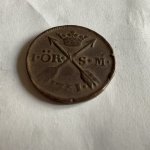dreamsofgold
Jr. Member
Hello everyone.. I need a crash corse education in diving and equipment .. I am going to be obtaining my dive cert in the soon future but at this point I am not even at the Ameture stage lol .. So, I need to learn about the pressures of different depths and what kind of equipment is needed for the various depths.. Any opinions on what type of equipment would be needed for a dive 300ft or less.. Any suggestions, information, opinions or knowledge will be greatly appreciated.. Thanks


 Like everyone mentioned it can be a dangerous sport, but then again driving 100 mph down a crowded street is dangerous and crazy! Point I'm trying to make is diving is fantastic IF YOU are responsible and don't go beyond your limits. My wife and I have been diving for six or seven years now. I would do it everyday if I could. LOVE IT!! Its like being in space or having the ability to fly! Totally awesome experience. I'm not sure why you want to go 300 ft though. 300 feet of water is NOT 300 feet of air. The safety stops on a 300 ft dive alone would be more than I would want to deal with. If your interested in "treasure" it is estimated that most treasure ships were lost in shallow water. I think the Atocha was only in 60 foot of water. Check out the Florida Keys and you will see why. Very shallow water for miles and miles. Bottom time last much, much longer on shallow dives. If great depths interest you go for it. It will take a lot of additional training. Your open water certification is only good for 100 ft. or less. Deepest the wife and I have gone is 67 feet. in the Caymens. Get the Best Equipment you can afford! Its your life your dealing with. We both have about $5000 bucks invested in equipment. BC's, dive computers, tanks, lights, fins, wet suites, I could go on and on. It is quite the expensive sport. But OH what a sport!! Good Luck and be safe!!
Like everyone mentioned it can be a dangerous sport, but then again driving 100 mph down a crowded street is dangerous and crazy! Point I'm trying to make is diving is fantastic IF YOU are responsible and don't go beyond your limits. My wife and I have been diving for six or seven years now. I would do it everyday if I could. LOVE IT!! Its like being in space or having the ability to fly! Totally awesome experience. I'm not sure why you want to go 300 ft though. 300 feet of water is NOT 300 feet of air. The safety stops on a 300 ft dive alone would be more than I would want to deal with. If your interested in "treasure" it is estimated that most treasure ships were lost in shallow water. I think the Atocha was only in 60 foot of water. Check out the Florida Keys and you will see why. Very shallow water for miles and miles. Bottom time last much, much longer on shallow dives. If great depths interest you go for it. It will take a lot of additional training. Your open water certification is only good for 100 ft. or less. Deepest the wife and I have gone is 67 feet. in the Caymens. Get the Best Equipment you can afford! Its your life your dealing with. We both have about $5000 bucks invested in equipment. BC's, dive computers, tanks, lights, fins, wet suites, I could go on and on. It is quite the expensive sport. But OH what a sport!! Good Luck and be safe!!



